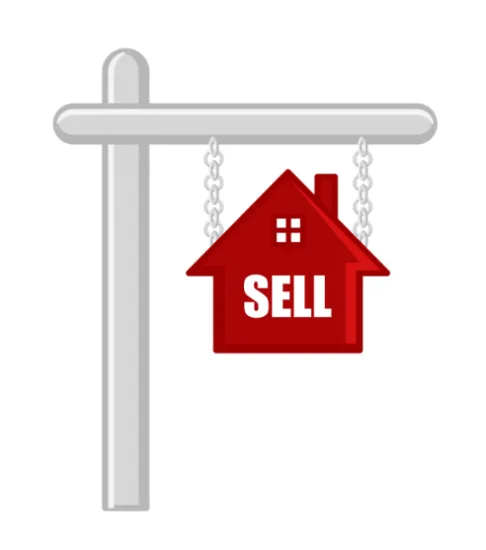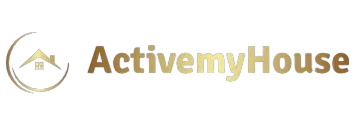
When it comes to buying a home, one of the biggest financial decisions you’ll make is choosing the right type of mortgage. For first-time buyers and even experienced homeowners, navigating through mortgage options can feel overwhelming. With so many choices available, understanding the difference between fixed and variable mortgage rates is crucial to making an informed decision that suits your lifestyle and long-term goals. If you’re working with property experts like Mullucks Bishops Stortford estate agents, you’ll quickly realise how important it is to select the right mortgage to complement your property journey.
What is a Mortgage?
At its simplest, a mortgage is a loan you take from a bank or lender to purchase a home. Since most people cannot buy a property outright with cash, mortgages make it possible to spread the cost of a home over many years—typically 15, 20, or even 30. The amount you borrow, plus the interest applied, is repaid in monthly instalments.
The type of mortgage rate you choose will significantly influence the total cost of your loan, the predictability of your monthly payments, and how you manage your finances in the years to come.
Fixed-Rate Mortgages
A fixed-rate mortgage is one where the interest rate stays the same for a set period—usually two, five, or sometimes ten years. During this fixed term, your monthly repayments won’t change, regardless of what happens in the wider economy or to the Bank of England’s base rate.
Advantages of Fixed Rates
- Stability: Your monthly payments remain the same, making it easier to budget and plan.
- Peace of mind: You’re protected from sudden rises in interest rates.
- Ideal for long-term planners: If you like certainty, a fixed rate ensures there are no surprises.
Drawbacks of Fixed Rates
- Less flexibility: If interest rates drop, you won’t benefit from lower payments.
- Early repayment charges: Leaving a fixed-rate deal before the end of the term often comes with hefty fees.
- Slightly higher rates: Fixed mortgages usually start at a higher interest rate than variable deals because you’re paying for stability.
In essence, a fixed-rate mortgage is best for buyers who want financial security and prefer to know exactly what they’ll pay each month.
Variable-Rate Mortgages
A variable-rate mortgage, as the name suggests, does not have a fixed interest rate. Instead, it moves up or down depending on various factors, often linked to the Bank of England’s base rate or your lender’s standard variable rate (SVR).
Types of Variable Mortgages
- Tracker mortgages: These track the Bank of England base rate, usually with a small percentage added on top.
- Discount mortgages: These offer a discount off the lender’s SVR for a set period.
- Standard Variable Rate (SVR) mortgages: Your lender sets this rate, which can change at any time.
Advantages of Variable Rates
- Potential savings: If interest rates fall, your monthly repayments decrease.
- Flexibility: Many variable mortgages allow you to overpay or switch without heavy penalties.
- Often lower initial rates: These deals can sometimes be cheaper at the outset compared to fixed mortgages.
Drawbacks of Variable Rates
- Uncertainty: Payments can increase unexpectedly if interest rates rise.
- Budgeting challenges: Planning ahead becomes harder with fluctuating payments.
- Financial stress: If rates rise significantly, repayments can become unaffordable for some households.
Variable mortgages tend to suit buyers who can tolerate some risk and have the financial flexibility to handle changes in monthly costs.
Which One Should You Choose?
The decision between fixed and variable mortgages often comes down to personal preference and financial circumstances.
- Choose fixed if…
- You value certainty and stability.
- You’re on a strict budget and can’t risk payment increases.
- You want peace of mind in a potentially volatile market.
- Choose variable if…
- You’re comfortable with a bit of financial risk.
- You want to take advantage of potential rate cuts.
- You have a financial cushion to absorb potential increases.
For many homeowners, a fixed-rate mortgage provides reassurance, particularly in times of economic uncertainty. On the other hand, those willing to gamble on lower repayments may find variable mortgages more appealing.
Long-Term Considerations
It’s also important to consider how long you plan to stay in the property. If you’re looking at your home as a short-term stepping stone, a variable mortgage could offer the flexibility you need. However, if this is your “forever home,” then the stability of a long-term fixed-rate deal may be more suitable.
Additionally, think about potential future interest rate trends. While no one can predict them with certainty, reviewing economic forecasts or consulting a mortgage adviser can help guide your choice.
Seeking Professional Advice
Ultimately, the right mortgage depends on your unique financial situation, lifestyle, and goals. Mortgage brokers and estate agents can provide tailored advice to help you find the best option. They’ll consider your income, outgoings, risk tolerance, and long-term plans before recommending whether a fixed or variable mortgage makes sense.
Conclusion
Mortgages are never a one-size-fits-all solution. Fixed rates provide stability and security, while variable rates offer flexibility and the chance of savings. The key lies in understanding your own needs and financial resilience. Before committing, take the time to weigh the pros and cons, consider your long-term plans, and seek advice from trusted professionals.
Choosing between fixed and variable rates may feel like a daunting decision, but with the right guidance and clear understanding, you can select the mortgage that best supports your journey towards homeownership.
